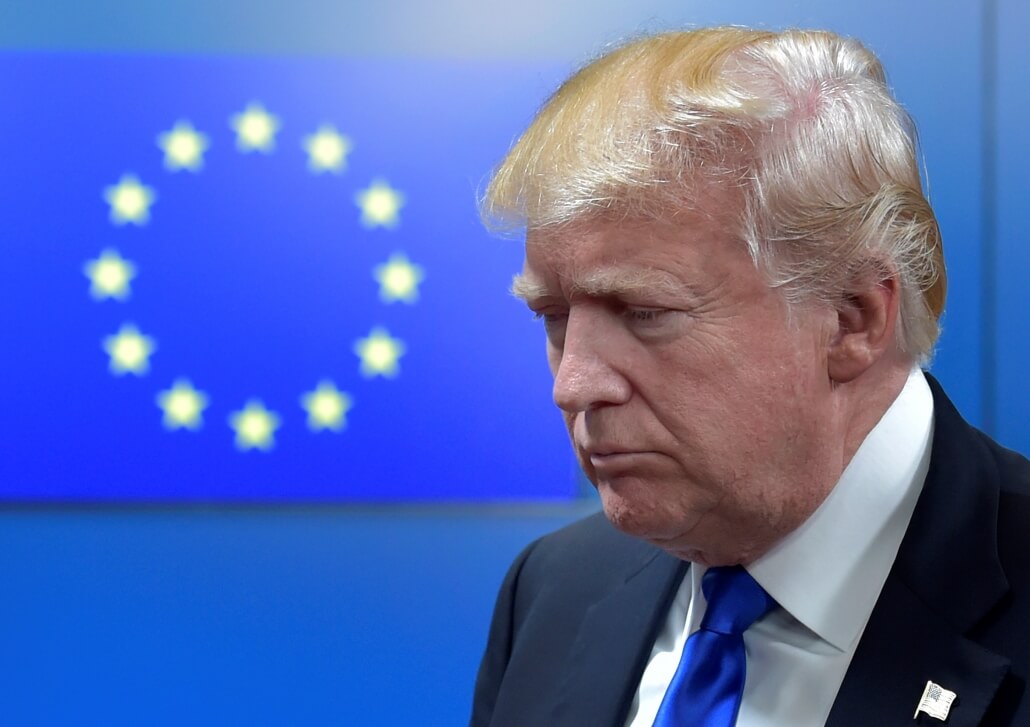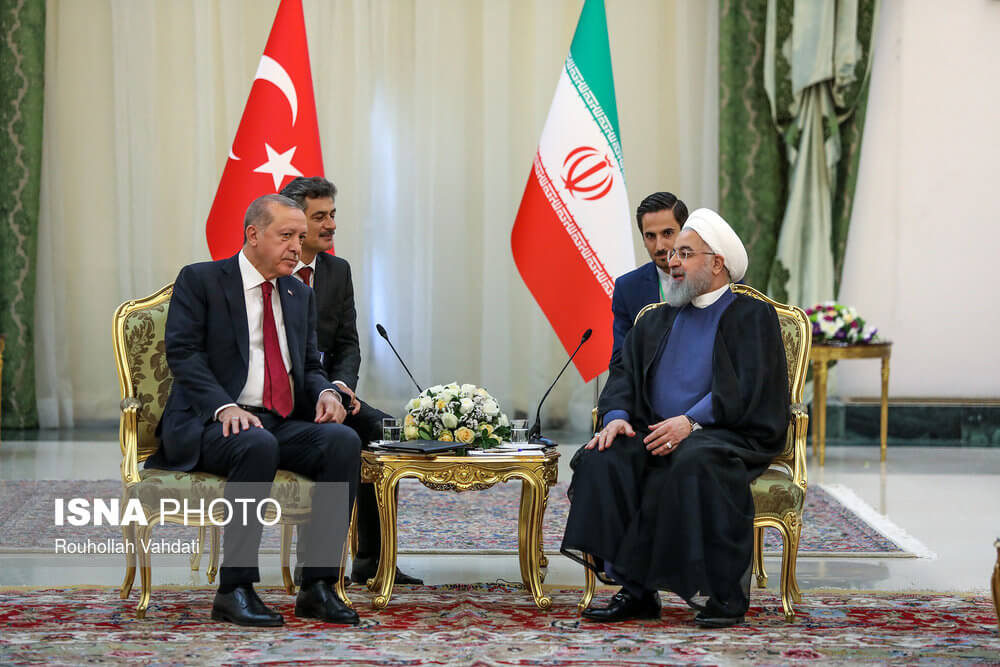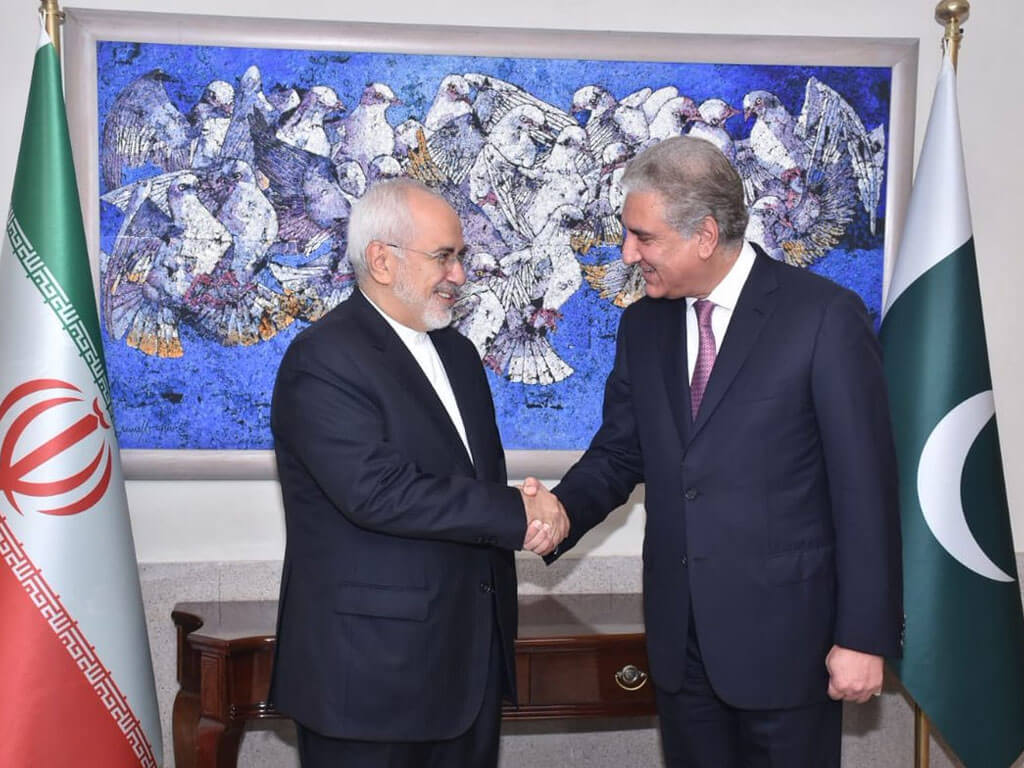US President Donald Trump’s sanctions against Iran are looking increasingly like words rather than deeds as the largest economies in Europe collaborate on the creation of a ‘special purpose’ financial tool to circumvent Washington’s foreign policies in the Middle East.
In open defiance of the Trump administration, much of Europe is laying the groundwork to build a special purpose financial organization that will bypass US sanctions on Iran and assist Tehran in continuing to sell oil in the EU.
With the full support of the European Union, the move by the UK, France and Germany is hoped to be a wake-up call to Trump and his cabal, following the White House’s unilateral withdrawal in May from the Iran JCPOA nuclear accord — a hard-won treaty negotiated successfully by Russia, China and Europe.
Although the Trump White House pulled out of the historic 2015 Iran nuclear deal, the other signatories have pledged that they will protect the treaty, which bans Iran from building or stockpiling nuclear weapons in exchange for open financial markets and the unfreezing of Tehran’s assets held in the West.
US economic sanctions against Tehran went into effect last month and additional sanctions — particularly those against the nation’s highly-profitable fossil fuel industry — have been planned for November.
The EU has taken some steps to circumvent the Trump sanctions against Tehran, but with the creation of a special financial workaround to sidestep the architecture surrounding the use of US currency, European officials seek to bypass Washington’s monetary dominance of world markets.
A spokesperson for the German finance ministry confirmed on Friday the European plan to legislate a special purpose financial vehicle, according to German news outlet Spiegel.
“The German government is working together with the EEAS and European Commission, as well as France and the United Kingdom, on maintaining financial payment channels with Iran,” the spokesperson noted, adding, “The negotiations on this are intensive and ongoing. There are different models under consideration,” cited by Politico.
The EU desperately needs “a financially independent sovereign channel” to retain the JCPOA Iran nuclear deal, said an unnamed French official associated with the ongoing negotiations for the proposed financial system, cited by Spiegel.
The announcement of the plan comes just two days after the last formal address by outgoing European Commission President Jean-Claude Juncker, in which he argued to strengthen the euro as an international currency, particularly with regard to global energy-related transactions.
Europe’s intent to support Iran will almost certainly further erode the down-and-out transatlantic relationship between Trump and the Continent.
The US withdrawal from the 2016 Paris climate agreement, an endless parade of seemingly arbitrary trade tariffs against legacy trading partners, a blindsiding critique of NATO and the White House decision to move the US embassy to Israel from Tel Aviv to Jerusalem have deeply angered and dismayed many of America’s most cherished long-term allies.
A European ‘special purpose’ financial vehicle would, according to an EU official cited by Politico, function primarily as an accounting tool, and provide necessary legal and monetary loopholes between Iran and EU nations.
A European nation or state-run oil company seeking to purchase Iranian oil would transfer cash to the new organization which would then complete the transaction. The reverse would also be true, allowing Tehran to purchase all manner of products from Europe, including medical and industrial technology.
The EU special purpose financial vehicle will keep the cash inside the economic bloc and away from US-controlled global money-transfer network, including SWIFT, while also avoiding the use of any bank afraid of being locked out of doing business with US financial markets.
The creation of a financial tool to avoid Trump sanctions on Iran must now see the establishment of a physical office space, as well as the structuring of its ownership and startup capital sources, according to Politico.
Source: SPUTNIK NEWS











